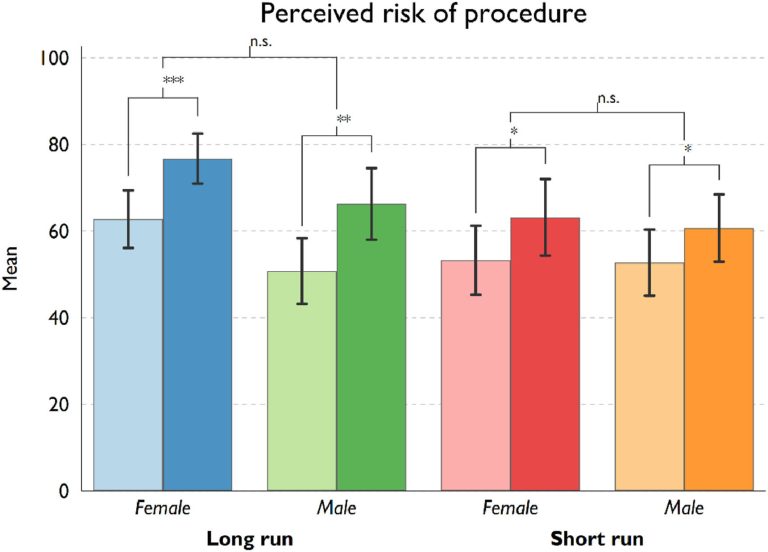Perceived risk of surgery, video before and after surgery, which varies according to treatment conditions. Credit: The breast (2023). DOI: 10.1016/j.chest.2023.02.007
Complications after breast augmentation are more common than other cosmetic procedures, yet many women undergoing such procedures are often in the dark about the risks involved, say QUT researchers.
The authors of a new paper argue for the need for more early (and in much simpler terms) disclosure of these risks and the high likelihood that revision surgery will be needed, so that when women consent, they better understand what might happen.
“The Australian cosmetic surgery industry is worth billions, but there are concerns within the industry about potential issues around whether patients are being fully informed,” said Dr. Stephen Whyte, lead author, behavioral economist, Senior Research Fellow and Associate Director of the QUT Center for Behavioral Economics, Society and Technology (BEST Centre).
“Research shows that almost one in five women believe their pre-operative expectations do not match their post-operative experience and results.”
The paper, “Factors influencing informed consent in cosmetic breast augmentation,” published in The breastis co-authored by Associate Professors Laura Bray, Martin Brumpton, Dr. Ben (Ho Fai) Chan, Dr. Timothy S Peltz (UNSW), Manisha Tamar, Professor Uwe Dulleck and Distinguished Professor Dietmar W Hutmacher
Researchers conducted a randomized videotaped experiment with 178 women aged 18–40 who participated in a hypothetical “first consultation” with two real, experienced breast surgeons based in Australia.
Questions asked of the participants included their age, height and weight, perception of their breast size, marital status, educational level and whether they had children. The researchers also measured their sociosexual orientation using the Sociosexual Orientation Inventory, a self-reported survey scale used to measure individual differences in sexual liberality.
They found that women who consider themselves to be healthier, in some form of committed relationship, emotionally stable, and with higher levels of education are more likely to understand the risks associated with breast augmentation and less likely to have it or not. recommend to a friend.
Minor risks from breast augmentation may include bleeding during or after surgery, infection, interference with future mammograms, fluid collection around the implant, and change in nipple and breast sensation. Higher risks may include rupture and deflation of the implant, capsular contracture, and secondary surgery with new often large immediate financial costs.
“For patients who undergo breast augmentation surgery at a relatively young age, such as in their mid-20s, the lifetime chance of revision surgery is close to 100%,” said Dr. Whyte.
“There is a growing consensus among plastic surgeons that during the consent phases of the patient/physician consultation, there is a potential issue as to whether patients are fully informed of the short- and long-term risks, whether medical or financial.
“There are strict legal documents that explicitly point out all potential risks, but these documents may be vague, complicated, or insufficient to explicitly depict the likelihood of such events occurring to potential patients. Therefore, potential patients may attribute unreasonably low chances with negative surgical results.
“Some of the documents are difficult even for medically trained specialists to interpret and communicate. Our findings highlight the need for clearer preoperative disclosure and consent forms written in simpler language.
“Previous studies have suggested that consent forms are only written at Year 6 language level because patients may not understand or would likely forget much of the information disclosed to them by their doctor.”
More information:
Stephen Whyte et al, Factors influencing informed consent in cosmetic breast augmentation, The breast (2023). DOI: 10.1016/j.chest.2023.02.007
Reference: More exposure needed on cosmetic breast augmentation risks, study finds (2023, June 23) Retrieved December 27, 2023 from
This document is subject to copyright. Except for any fair dealing for purposes of private study or research, no part may be reproduced without written permission. Content is provided for informational purposes only.

